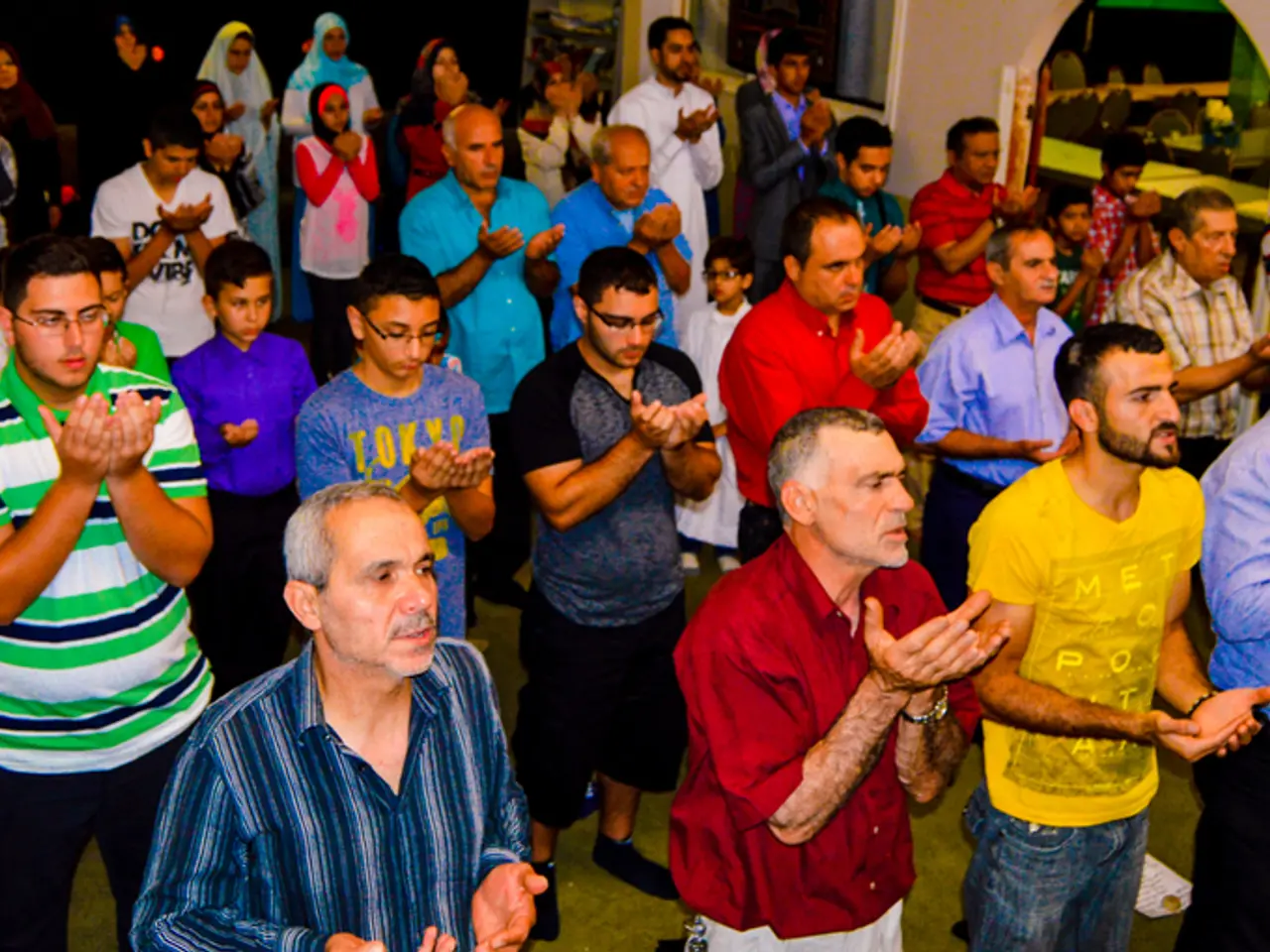Redefining the Sacred: The Increase in Non-Religious Spiritual Activities Among Millennials and Gen Z
In recent years, a significant shift has been observed in the spiritual landscape, particularly among Millennials and Gen Z. This demographic is increasingly seeking emotional wellness, personal growth, and a sense of purpose through non-religious spiritual practices, often blending digital convenience with ancient traditions.
### Key Trends
One of the most prevalent trends is the integration of micro-healing and digital spirituality. Gen Z is adopting small, daily rituals, such as brief meditation, tarot readings, and quick check-ins with wellness experts, into their routines via apps and online platforms. These practices offer immediate, personalized support for emotional regulation and self-discovery, accessible 24/7 through technology.
Astrology and divination, particularly tarot readings and astrology, have surged in popularity, especially on social media and via apps. These tools are used less for divination in a traditional sense and more as frameworks for understanding oneself and the world.
Healing crystals, meditation resins, and other metaphysical tools are widely embraced, often seen as aids for focus, relaxation, and attracting positive energy, rather than strictly religious objects.
The interest in holistic wellness practices such as yoga, meditation, breathwork, and mindfulness continues to grow, often stripped of overt religious connotations and framed as self-care or mental health practices.
Witchcraft and DIY rituals, such as spell jars, moon rituals, and herbalism, are popular, especially as DIY, customizable practices that emphasize personal agency and creativity over dogma.
A significant majority of Millennials and Gen Z remain "spiritually open," exploring and blending practices from various traditions to create personalized spiritual experiences.
### Motivation and Context
This shift is driven by a desire for meaning, emotional support, and community, often in response to modern stressors like uncertainty, social pressure, and digital overload. Young people are particularly attracted to practices that are flexible, immediate, and tailored to individual needs, often leveraging technology to access experts and communities.
### Comparison Table
| Practice | Typical Use Case | Technology Integration | Appeal to Young People | |------------------------|---------------------------------------|----------------------------|---------------------------------| | Micro-healing | Daily emotional check-ins | Apps, online platforms | Personalized, immediate support | | Astrology & Tarot | Self-reflection, decision-making | Social media, apps | Framework for understanding life| | Crystals/Energy Work | Focus, relaxation, positivity | Online shops, communities | Tangible, customizable | | Witchcraft/DIY Rituals | Personal agency, creative expression | Online tutorials, forums | Empowering, non-dogmatic |
This new spiritual landscape is marked by eclecticism, personalization, and digital integration. While institutional religion may be less central, the quest for meaning and connection remains strong—now expressed through a mosaic of non-religious spiritual trends.
Mindfulness and meditation, nature worship, eco-rituals, ancestral traditions, sound baths, cacao ceremonies, and intention-setting circles are examples of spiritual practices adopted by Millennials and Gen Z that are not tied to religion.
Younger generations value pluralism and don't want to exclude others based on belief. Scandals and corruption have eroded trust in organized religion, and practices like mindfulness, breathwork, and sound healing support mental health needs.
The result is a new kind of sacred fluid, personal and often collective. The shift reflects a deep yearning for connection, belonging, and meaning without rigid doctrines.
Ravi, a 35-year-old musician, practices his spirituality alone, with rituals involving walking barefoot in the park at sunrise and offering gratitude to "the energies that sustain life." Aditi, a 29-year-old designer in Bengaluru, keeps a small corner in her apartment where she practices her personal spiritual rituals, including lighting a diya each evening, journaling her intentions, and meditating to the sound of Tibetan bowls.
Today's generation is reinterpreting tradition in a language that feels relevant to their lives. Non-religious rituals and spiritual self-care practices are accessible and adaptable. These practices don't require a guru, a temple, or a belief in any particular deity.
The quiet revolution underway in India and beyond involves Millennials and Gen Z turning away from traditional religious institutions, not necessarily from faith itself. Many young people are reclaiming spirituality in ways that feel authentic, inclusive, and life-affirming.
- This newfound interest in emotional resilience is reflected in the growing popularity of micro-healing practices, such as daily meditation and tarot readings, which are accessible via apps and online platforms.
- The health-and-wellness sector has seen a surge in the demand for holistic practices like yoga, breathwork, and sound healing, with many young people seeking these as mental health solutions rather than strictly religious rituals.
- In the realm of lifestyle, fashion-and-beauty, and food-and-drink, the concept of self-care has expanded to include practices like cooking nourishing meals, adopting sustainable fashion choices, and mindful consumption.
- As for mental-health, the digital era provides a wealth of resources for self-discovery and personal growth, with various online communities offering support, insights, and guidance on everything from meditation and mindfulness to practicing DIY rituals and herbalism.




